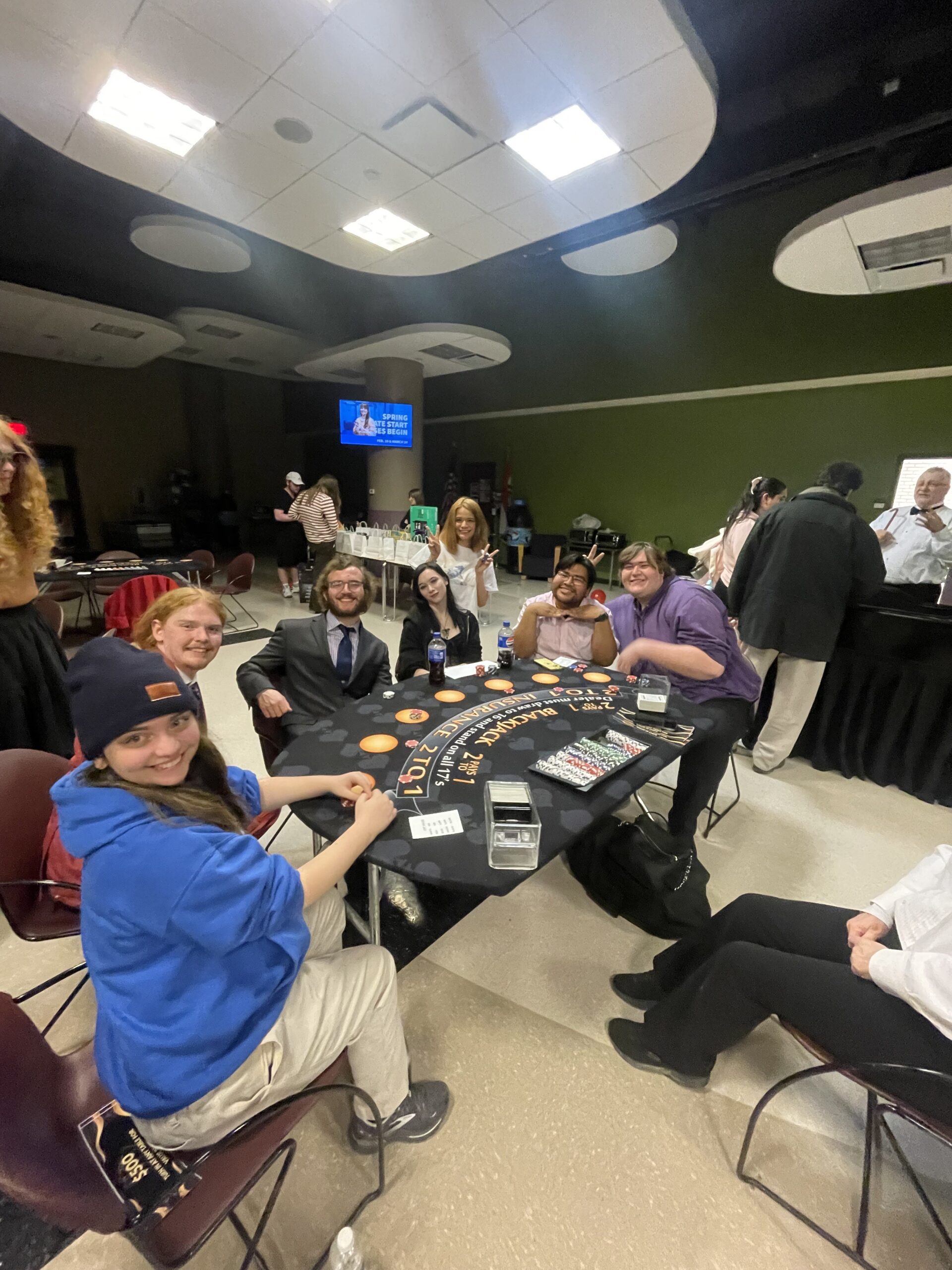Dan Parris, an alumnus of STLCC-Meramec, decided to educate people about the disease and poverty in third world countries and to “speak up for those who can’t speak for themselves,” He created a the Give A Damn? project.

Amy Winstead
– Staff Writer –
After spending time in Nairobi, Kenya, Dan Parris, an alumnus of STLCC-Meramec, decided to educate people about the disease and poverty in third world countries and to “speak up for those who can’t speak for themselves,” He created a the Give A Damn? project.
While a student at Meramec, Parris founded the Global Justice Project which educates students about human rights issues and holds fundraisers for organizations that work to alleviate poverty. For the documentary, Parris convinced his friends to join him on a journey to live on a dollar a day and to film what Americans think about their role in alleviating Third World poverty and what actually works to alleviate poverty.
“We were also very interested in documenting how an average American could practically get involved and help them help those who are in need,” said David Peterka, another Meramec alumnus, once a president of the Global Justice Project and current member of the Give a Damn team.
Parris, accompanied by Rob Lear and Peterka, toured the United States and Europe before traveling to Africa.
“We did man-on-the-street interviews in St. Louis; Springfield, MO; San Diego; San Francisco; Los Angeles, CA and Canterbury, England,” Parris said.
The Give a Damn team then traveled to Africa to film what is being done to fight extreme poverty by visiting organizations.
On Aug. 1, 2009, Lear and Parris were flying above Nairobi to capture on film the slum of rusted roofs for their documentary.
The plane, in which Lear and Parris were traveling, lost altitude and then crashed through power lines and into a building. Lear, who sustained a head injury, walked away from the crash, then returned to free Parris and the pilots. Parris broke his collarbone, compressed his spine, and suffered abdominal injuries. One pilot died on impact and the other pilot died later in the hospital from his injuries. Both pilots, Frank Toews and Ryan Williams, were missionaries living with their families in Kenya.
“Five seconds prior to impact, Dan and I realized that the worst was happening. We were going down, and the only thing in front of us was a building. I secretly hoped that the pilot saw something that I could not, and we were headed for a field or something of that nature,” Rob Lear blogged on http://www.bit.ly/95XTiv.
Due to the deaths of the pilots, Lear and Parris have decided to honor them and their contribution to the film.
After the plane accident, Lear and Parris have been invited to film other enterprises combating poverty across Africa. Lear and Parris returned to the United States to recover, but Perterka and his brother Tim Peterka, also a Meramec alumnus, went on to film well digging in Kenya, an orphanage in Kenya, micro finance by Kiva in Rwanda, an HIV clinic in Tanzania and other projects by nonprofit organizations. So far, the team has captured more than 125 hours of footage for this film.
“My brother and I stayed in Africa about three and a half months and traveled through six countries including: Kenya, Uganda, Rwanda, D.R. Congo, Tanzania, and Sudan…Most of what we did was visit organizations in Africa on the front lines of fighting poverty,” Peterka said.
Being in Africa, Peterka discovered cultural differences between the United States and Africa regarding family and community. Africans, as he saw them, have a greater gratitude for their family and for the value of community.
“We are so individualistic and separated in America even from our own families that live in the same house, but in Africa, they are so good at truly cherishing one another. eEspecially within their own families,” Peterka said.
Parris emphasizes that the extreme poverty he saw in Kenya is different from the poverty we know in America. Extreme poverty is usually characterized by living on less than $1.25 a day, without clean water, sanitation and education. In many places, malaria and even diarrhea are fatal. One meal a day is typical for those in extreme poverty.
“Anyone in America can walk into a restaurant, get a glass a water, use the bathroom, beg for more than $1.25 on the streets and not have to worry about malaria. I don’t want to minimize poverty here in America; I could not live in it for long, but when compared to the Third World, it’s just two different scenarios,” Parris said.
Parris suggests a stepwise approach of becoming active in the global community and hopes to inspire others to search for ways to fight extreme poverty.
“There are so many ways to get involved: sponsor a child, give a micro-loan, buy fair trade, the list goes on and on. I think most young people are overwhelmed and feel like they have to do everything. Just start small and work from there. I think documentaries can also be a great tool to learn about the rest of the world,” Parris said.
“The documentary is continuing. I have been struggling with my health and that has made editing a slow process, but we are hoping to have the film finished this year,” Parris said.
Parris will submit the film to The Sundance Film Festival next January and hopes that the film will be picked for commercial distribution in the U.S.










